What are Herbicides
Herbicides, commonly referred to as weed killers, are chemical substances used to control unwanted plants. They play a vital role in agriculture and landscaping, where they help to maintain crop health by eliminating weeds that compete with desirable plants for nutrients, water, and sunlight. Herbicides are designed for use by farmers, gardeners, and land management professionals who seek to improve the productivity of their crops or maintain the aesthetic appeal of their landscapes.
The principle behind herbicides is selective toxicity—herbicides are formulated to target specific physiological processes in plants that are less critical or absent in the crops being cultivated. Depending on their mode of action, herbicides can inhibit plant growth by interfering with photosynthesis, protein synthesis, or other vital pathways. They may be systemic, being absorbed by the plant and transported throughout its tissues, or contact-based, killing only the plant parts they touch.
Herbicides come in various forms, including liquids, granules, and powders. They can be applied using sprayers, spreaders, or by hand, depending on the product and the area to be treated. The timing of application is crucial for effectiveness; some herbicides are most effective when applied before weeds germinate, while others are used post-emergence when weeds are actively growing.
Types of Herbicides
Within the category of herbicides, several types are tailored for different use cases and modes of action:
Selective Herbicides target specific types of weeds while leaving the desired crop relatively unharmed. These are particularly useful in lawns and agricultural fields where it is essential to preserve the health of the grass or crop plants.
Non-selective Herbicides are used when complete removal of all vegetation is required. These herbicides can clear industrial sites, railways, and other areas where no plant growth is desired.
Contact Herbicides address weeds that are visible above the soil surface. They destroy only the plant tissue in contact with the chemical and are often used for quick weed removal in gardens and walkways.
Systemic Herbicides are absorbed by the foliage and then move throughout the plant to areas of active growth such as roots and leaves. These herbicides provide a more thorough control as they can kill the entire plant over time.
Pre-emergent Herbicides are applied before weeds germinate. These are often used as a preventive measure in managed landscapes to maintain weed-free conditions.
Post-emergent Herbicides come into play after weed emergence and are often used when weeds are already established and need to be controlled without harming nearby desirable plants.
How to choose Herbicides
Selecting appropriate herbicides requires careful consideration of several factors to ensure effective weed management while minimizing harm to crops or other desirable plants. Here's what businesses should contemplate when purchasing herbicides:
Target Weeds: Identify the specific weeds you need to control. This will determine whether you require selective or non-selective herbicides and may also influence the choice between systemic and contact formulations.
Crop or Plant Sensitivity: Consider any potential negative effects on the crops or plants you wish to preserve. Selective herbicides should match the tolerance profile of your desired vegetation.
Application Timing: Choose pre-emergent herbicides for preventive treatments or post-emergent options for active weed infestations. Timing can significantly impact effectiveness.
Area of Application: Large-scale agricultural settings might need herbicides that can be efficiently applied using machinery, while smaller gardens may only require hand-held sprayers.
Environmental Conditions: Some herbicides may have restrictions based on environmental conditions such as temperature, rainfall, or proximity to water bodies due to potential runoff issues.
Regulatory Compliance: Ensure that the herbicide is approved for use in your region and complies with local regulations regarding chemical use in agricultural or residential areas.
Best Herbicides on Alibaba.com
For businesses around the globe seeking effective weed management solutions, Alibaba.com stands as an essential resource for sourcing a diverse range of herbicide products. With an extensive selection from suppliers across various countries, buyers can find exactly what they need for their specific applications—whether for agricultural fields, gardens, or industrial sites.
Alibaba.com simplifies international trade by offering user-friendly tools that help buyers navigate through options based on color, appearance, applicable industries, usage, material type, and key selling points. This level of detailed filtering allows for a customized search experience tailored to precise requirements. Moreover, with features like Trade Assurance, businesses can conduct transactions with confidence knowing that their payments are protected until delivery is completed.
For those looking to import herbicides in bulk quantities or even seeking customized solutions for their unique weed control needs, Alibaba.com's vast network connects buyers with experienced suppliers committed to meeting those demands. This seamless integration of global trade solutions empowers businesses not only to source quality products but also to foster growth and extend their reach in markets across over 190 countries.
Common FAQs for Herbicides
What factors should be considered when selecting a herbicide for agricultural use?
When choosing a herbicide for agricultural purposes, it is important to consider the type of weeds present, the crop's sensitivity to different herbicides, the timing of application, soil conditions, and environmental regulations.
How do pre-emergent and post-emergent herbicides differ?
Pre-emergent herbicides are applied to soil to prevent weed seeds from germinating, while post-emergent herbicides are used to kill weeds that are already actively growing.
Can non-selective herbicides be used in crop fields?
Non-selective herbicides should be used with caution in crop fields as they can harm all plants they come into contact with. They are typically used for clearing out areas where no vegetation is desired.
Are there environmentally friendly herbicide options available?
Many suppliers provide eco-friendly herbicide options that minimize environmental impact. These can include formulations with lower toxicity or organic certifications.
What is meant by 'selective toxicity' in herbicides?
Selective toxicity refers to the ability of a herbicide to target specific weeds without causing significant harm to other plants, such as crops or ornamental flowers.
What kind of protective equipment is necessary when applying herbicides?
Appropriate protective equipment such as gloves, masks, and protective clothing should always be worn when handling and applying herbicides to reduce exposure risk.
How does weather affect the application and effectiveness of herbicides?
Weather conditions like wind, rain, and temperature can significantly impact the application process and effectiveness of herbicides. For instance, rain shortly after application can wash away the product, while high winds can cause it to drift onto non-target areas.
What should be done if a herbicide damages non-target plants?
If non-target plants are damaged by herbicide application, it is important to assess the extent of the damage and consider measures such as watering or neutralizing agents. Future applications should be adjusted to prevent recurrence.
Are there restrictions on using certain types of herbicides near water bodies?
Many regions have strict guidelines on using herbicides near water bodies due to the risk of contamination. It's essential to consult local regulations before applying any chemicals in such areas.
How can businesses ensure they comply with local regulations when using herbicides?
Businesses should familiarize themselves with local regulations regarding the use of chemicals in agriculture or landscaping and ensure that the chosen products are approved for use in their specific location.
Can herbicides be used in organic farming?
Organic farming typically requires the use of natural weed control methods. However, certain organic-approved herbicides may be used under specific conditions, as outlined by organic certification standards.
What is the shelf life of a typical herbicide product?
The shelf life of a herbicide can vary depending on its formulation and storage conditions but is generally around two to three years when stored properly as indicated on the label.
How does one safely dispose of unused or expired herbicide products?
Disposal of unused or expired herbicide products should follow local regulations and guidelines, which may include taking them to a hazardous waste facility or participating in a community disposal program.
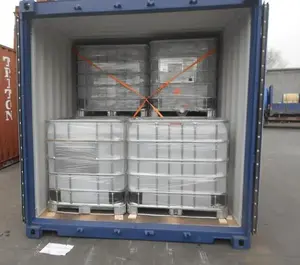












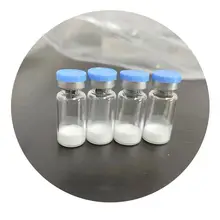
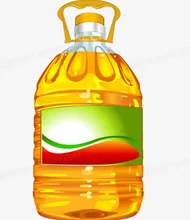


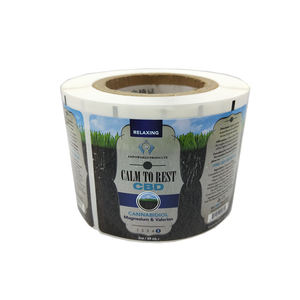
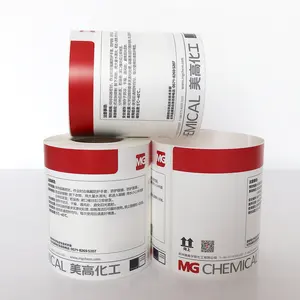























 浙公网安备 33010002000092号
浙公网安备 33010002000092号 浙B2-20120091-4
浙B2-20120091-4